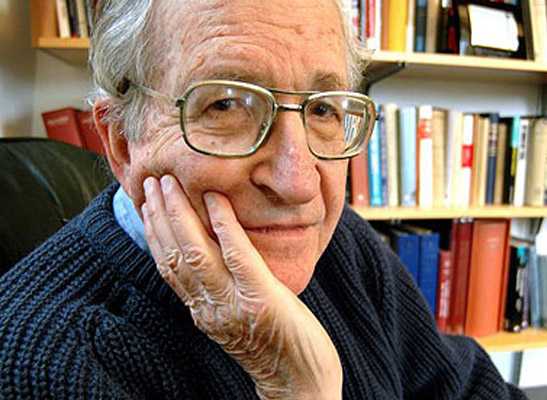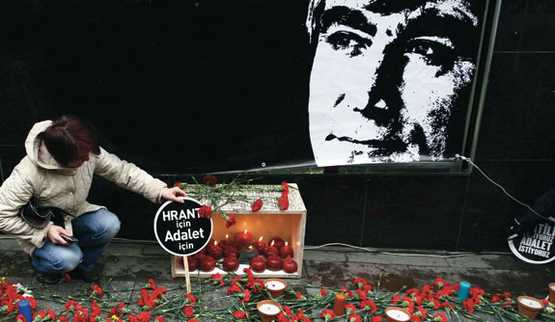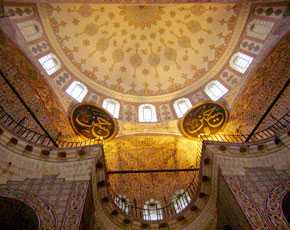Hrant Dink olayi tamamen civitildi. Turkiye’yi, Turk tarihini, kulturunu, ulkesini ve insanini adeta kum torbasina cevirmek icin hem arac ve hem de ortam haline getirildi.
Dink protestolari, Dink yuruyusleri, Dink panelleri, Dink makaleleri, Dink kitaplari, Dink filmleri, Dink odulleri, Dink internet siteleri, Dink muzeleri, Dink…Dink…Dink…
Dink, yani bir Ermeni binlerce Turkten daha mi degerli?
***
Biraz acayim:
Ermeni teroristleri (ASALA, JCAG, ve digerleri) 1973-1993 arasi, dunyanin her yerinde, ve hatta Turkiye’de, binlerce teror eylemi yaptilar. Bu bombali, kursunlu saldirilarda yuzlerce Turk’u
katlettiler. Binlerce insan yaralandi. Binalar, evler, arabalr, okullar, havaalanlari, bankalar, devlet binalari … onbinlerce bina hasar gordu. Yuzbinlerce insan degisen yogunlukta travmalar yasadi. Bugun Ermeni terorunun Turk kurbanlarindan hangisinin ismini hatirliyorsunuz?
Eger bir tanesinin adini soyleyebilirseniz, ben bu yaziyi geri cekecegim ve siz de okumanizi burada
kesebilirsiniz.
Ermeni teroru kurbanlarindan hangisi icin yuruyusler, paneller, basin toplantilari, internet siteleri, surekli TV programlari, belgeseller, filmler, yapildi?
Hangisi icin makaleler, kitaplar, agitlar, siirler, sarkilar yazildi? Oduller, paralar, serefler, burslar dagitildi? Avukatlar ordusu tutuldu? Muzeler, binalar insa edildi?
Oyleyse soruyorum: Dink, yani bir Ermeni onlarca, yuzlerce, binlerce Turkten daha mi degerli?
Kandirilmis bir Turk gencinin yaptigi tek bir teror eylemi, Ermenilerin son yuzelli yildir yaptigi binlerce teror eylemini siler mi? Unutturur mu?
Birak 150 seneyi, bir Dink, bir Arikan’i unutturur mu?
Unutturdu.
Suc bizde, cunku buna biz izin verdik…
***
Arikan’i ozellikle sectim. Eminim ki cogu okurun Arikan’in kim oldugundan haberi yoktur. Iste sorun da zaten burada ya.
Bazilarinin Turkiye’de Dink’e olan yaklasimi bir insan haklari ya da demokrasi yaklasimi degil; bilgisizlige dayali bir asagilik kompleksinin tezahuru, disavurumu. Bu yuzden de bu tip “Dink’ciler” e hem kiziyorum, hem de aciyorum…
Zavallilar, kendi ulkelerini, vatanlarini, insanlarini, kulturlerini, tarihlerini, geleneklerini, goreneklerini, ruhlarini, benliklerini, kimliklerini azar azar sattiklarini goremiyorlar… Oylesine, futbol takimi tutar gibi, kӧrü kӧrüne, bilgisizce ama arsizca bir itaat icindeler… Dink de Dink… Ille de Dink…
Hani bebeler vardir ya “cok, cok, cok, cok” boyuna emzik emerler… Bos ama mutlu gozlerle dunyaya bakarlar … Iste bu zavallilar da “dink, dink, dink, dink” diye sesler cikararak Turkiye-dusmani propagandalari emiyorlar…
***
Karsilastirma oldukca ogretici:
Arikan 1982 de Los Angeles’te bir genc tarafindan vurulmustu, adi Sasunyan. Dink’i 2007 de Istanbul’da vuran da bir Turk genciydi, adi Ogun Samast.
Turk genci bazi soylemler ve vaatlerle o anlik kandirilmisti ama simdi pismandi. Arikan’i vuran Ermeni gencinin ise beyni sistematik olarak uzun yillar icinde Turk nefreti ile yikanmisti ve sucunu tekrarlamaya her an hazirdi…
Arikan’da Dink te olduruldugunde 52 yasindaydi.
Ikisi de kursunlara hedef oldugunda evliydi.
Ikisinin de kizlari vardi ve onlar da benzer yaslardaydi.
Ama Dink icin butun Turkiye ayaga kalkti, terore lanet okudu, yuruyusler yapti, “Hepimiz Ermeniyiz” diye bile sacmaladi…
Arikan icin Los Angeles’te tek Ermeni bile yurumedi. Birak yurumeyi, yuzlercesi, binlercesi zil takip oynadi. Bir seytan daha gitti diyenler bayram yaptilar. Ermeni kiliselerinde Ermeni teroristler icin paralar toplandi. Bunlardan bihaber Turk magandalar ise 25 sene sonra Istanbul’da 2007 de bir pankart tasiyordu: “Hepimiz Ermeniyiz.” Soruyorum: asagilik kompleksi bu degidir de nedir?
***
Dink’in katilini babasi polise yakalatti. Yani kendi babasi bile Turk katili desteklemedi. Sasunyan’i ise bazi Ermeni aileler gunlerce Los Angeles polisinden sakladi. Sonunda Amerikali gorgu sahitleri ortaya cikti da Sasunyan yakalanabildi. Yoksa o da bugun hala yakalanmamis olurdu, tipki suc ortagi gibi (o simdi Lubnan’daymis.)
Halbuki Samast hemen yakalandi, yargilandi, 22 yila hapis cezasinamahkum oldu… Bu bile bazi Ermenilerin Turk-dusmanligini, kinini, nefretini dizginleyemedi… Neymis efendim, derin devletmis! Fransa’nin serbest biraktigi ASALA katili bugun Ermenistan’da kahraman muamelesi goruyor. Derine de lluzum yok, bunlar sig devletler… ve vapacik hareketler… Ama bu onlari ilgilendirmiyor, cunku olenler Turk ve Musluman… Yani “harcanabilir” turden… Dink lobisi ve onun bazi tanidik-bildik Turk isbirlikcileri bastiriyorlar: derin devlet de derin devlet…
Dink’in oldurulmesini Turkiye Cumhurbaskani, Basbakani, Bakanlari, Valileri, Belediye Baskanlari, toplum liderleri, kanaat onderleri, sanayiciler, isadamlari, sanatcilar, sporcular, halk herkese
kinadi… Bu Turkiye icin cok buyuk bir artidir. Tarihi bir hosgoru belgesidir…
Arikan’in ӧlümünü ise, birkac soguk diplomatik aciklama disinda, kimse kayitsiz sartsiz olarak kinayamadi. Ne Ermeni diasporasi, ne Ermenistan politikacilari, ne Ermeni yazarlari, sanatcilari, aydinlari… Hic kimse! Hepsinde de kayitlar sartlar vardi. “Efendim, oldurme yanlisti ama bu yerde kanlar icinde yatan Turk diplomat, kanli tarihi nedeniyle olumu bir sekilde haketmisti…Zaten bunlar derin devletciydi… ” demeye getiren affettirici soylemler denediler.
Turkler ve Ermeni Diasporasi aradaki bu “derin” davranis, hissiyat, ve ahlak farkini hala goremeyeniniz kaldi mi?
***
Amerikali tarihci Justin McCarthy’nin “Turks In America” diye yeni bir kitabi var. Tavsiye ederim. Mutlaka okuyun. Turkcesi de yakinda cikiyormus galiba–cikmiyorsa da cikmali diye dusunuyorum. Dusunun ki, 500 sayfalik bir kitap ama 200 sayfasi kaynaklara, aciklayici notlara ayrilmis. Yani boylesine zengin ve ayrintili bir arastirma urunu.
Kitap okuyacak vaktiniz yoksa, lutfen hic olmazsa sadece ikinci bolumunu okuyun. Bostonlu Protestan Misyonerlerin Batida yarattigi olumsuz Turk imajini anlayin, gorun, hissedin…
Amerika’da son ikiyuz yilda Osmanli ve Turkiye hakkinda yazilanlari, soylenenleri bir okusaniz, kaniniz damarinizda donar. Benimki dondu.
O kitapta 1819 yilinda bir Boston Kilisesinde Potestan misyoner Pliny Fisk’in vaazini bir okuyun. Yazar McCarthy, o gunlerden baslayip bugune kadar inatla gelen anti-Turk soylemlerin izini adeta usta bir izci surmus.
Hangi mektup, hangi hutbe, hangi kilise, hangi okul, hangi kitap, hangi gazete, ne zaman, nerede… Kim neler soylemis, yazmis… Reaksiyonlar ne olmus… Bugunlere nerelereden gecilerek, hangi evrimler yasanarak gelinmis… Bunlari tek tek okuyun. Gorun. Nalinci keseri Dinkcilerin iste bu gelenegi nasil surdurdugunu anlayacaksiniz… Onlar icin Dink arac; Turkiye’ye saldirmak, Turk’u karalama amac…
Bu kitap kadar yazdiktan sonra size biraz tattirmazsam bir belki yeriniz siser. O yuzden, izninzile, sadece ikinci bolumun cok kisa bir ozetini sunayim. Bu kitabin, “Dink’ciler” in bugunku davranislarinin ardindaki karanlik ve nefret dolu zihniyeti nasil aciga vurdugunu goreceksiniz.
Amerika kuruldugu yillarda (1776-1818) Hristiyanlik, daha dogru bir deyimle Protestanlik, one cikiyor. Gerci anayasa ve yasalar var tabii ama yasam genellikle dini degerler uzerinden duzenleniyor.
Inanislardan biri ise Yahudilerin Isa peygamber’e ihanet edip kotu yola saptiklari, dunyadaki tum kotuluklerinin kaynaginin bu oldugu, ve eger bu Yahudilerin tekrar Hristiyanliga dondurulmesi saglanabilirse Isa’nin yeryuzune tekrar geri gelecegi ve tum sorunlarin bitecegidir. Inanclari bu. Seversin, sevmezsin. Inanirsin, inanmazsin. Inanclar tartisilmaz ki.
Hatta bu yuzden Protestanlar ve Presbyteryanlar Kudus’e buyuk ilgi duyuyorlar. Derken misyonerler gonderiyorlar. Ilk giden misyonerler raporlarinda Protestan yapilmasi gerekenleri siraliyorlar: once Yahudiler, sonra Muslumanlar, sonra Ortodokslar (Rum), sonra diger sapmis Hristiyanlar (Ermeni, Nasturi, Asuri, vs) ve sonra da Katolikler.
Bunlardan ilk ucunde hicbir yol katedemeyince de Ermeniler uzerine yogunlasiyorlar ve anti-Turk,
anti-Musluman soylemlerle, Anadolu’ya yuzlerce okul ve hastane yapip egitim ve saglik hizmetleri goturerek Ermeniler arasinda hatiri sayilir bir Protestan kesim yaratiyortlar. Iste sorun bu calismalardaki
anti-Turk, kin dolu ve bolucu soylemlerde. Tamamen hurafe ve nefrete dayali bu soylemlerden bazilari aynen, bazilar hafifleyerek gunumuze kadar gelmisler.
Iste ABD deki anti-Turk soylemlerin, makale ve kitaplarin, belgesel ve filmlerin, ve hatta politikalarin ardinda bu ikiyuz yillik misyoner edebiyati cikabiliyor.
Bostonlu Protestan Misyonerlere gore Muslumanlik sahte bir dindir, gelenekleri sapiktir, tum Muslumanlar Hristiyan olmadikca dunyada huzur yoktur. Turkler de Muslumanlarin en birincil temsilcisidir. Tembeldir, sakindir,kafasi calsimaz, reform yapamaz, kendisini yenilemesi, gelistirmesi mumkun degildir, ama kizdigi zaman cok kotu seyler yapan bir canavardir. (Misyonerlik merkezinin, soykirim iddialarini kabul ettigini ilk defa 2003 yilinda beyan eden Globe gazetesinin ve Ermeni Devrimci Orgutu merkezinin hepsinin de Boston’da bulunmasi bir tesaduf mudur?)
Ondikuzuncu yuzyilda koskoca Osmanli imparatorlugu icin sadece bir veya iki paragraf vardir lise tarih kitaplarinda ve onlarda yukarida yazdigim yalan ve hakaret dolu seylerdir. Bu kitaplara gore Turk’te sanat ve bilim yoktur, varsa mutlaka Hristiyan kokenliler tarafindan yapilmistir. Turk’un mimarisi, han, hamam, kopru, cesme, yol, cami ve diger eserleri, sanati, siiri, felsefesi, Mevlana’si, Yunus’u, Nasreddin
Hoca’si, Dede Korkut’u, cinisi, halisi, minyaturu, muzigi, hic ama hic yoktur.)
Binlerce yillik Turk, Amerika’nin Tarih kitaplarinda iki paragraftir ve ikisi de cok kotudur. Haritada zor bulacaginiz Karayip adalarina bile sayfalarca yer veren bu tarih kitaplari, uc kitaya 623 hukmetmis bir dunya imparatorlugu icin sadece iki paragraph ayirmistir… ve orada bile hakaret etmistir.
Boylece, Pazar okullarinda anti-Turk soylemler ile tanisan minnacik cocuklar, orta okulda ve lisede birkac paragraf ta olsa bu nefret ve onyargi soylemini tekrar duymaktadir. Universiteye gelen genc
Turk hakkinda fazla birsey bilmez ama bildigi cok kotu seylerdir.
Universitede ise anti-Turk soylem bilimsel bir havaya sokulur. 1453 Istanbul’un fethi ve onun etkilerinden soz edilirken Turklerin nasil yakip yiktigi belgelenmeye calisilir. Bizans yasami, sanati ve teknolojisi one cikarilir. Dogal olarak, bunu okuyan genc te Turkiye’ye karsi, en hafif deyimiyle,
endiseli ve mesafeli olur. Seni sever, dost olursun, tanisirsin, Turk oldugunu ogrenince ilk lafi su olur: “Hic Turk’e benzemiyorsun?” Cunu kafasinda pala biyikli, kilicindan kan damlayan bir katil imaji var. (Boylelerine genellikle esprili cevap veririm: Eger devemi ne yaptigimi ima ediyorsan hemen soyleyeyim, onu binanin arkasina parkettim.)
85 milyonluk Almanya’dan 4-5 milyon turist ceken Turkiye’nin, 330 milyonluk ABD den yarim milyon turist bile cekememesinin ardinda yatan etken sadece cografi uzaklik degildir; yukarida anlattigimiz bu tarihi, dini, ahlaki boyutlardaki uzakliktir. Onyargidir. Haydi nefret demeyeyim de antipatidir. Derin kizginlik ve sevgisizliktir…
***
Bu onyargilarin isiginda, ben Dinkciler’i degerlendiriyorum:
1) Dink ailesi ve yakinlari – bunlarin acisi gercektir ve tabii ki anlasilabilir. Bunlar zaten grubun binde biri bile degildir.
2) Ozurcu aydinlar – Yani Dink’i Turkiye’yi surekli karalamak icin bir arac ve/veya bir platform olarak kullananlar. Bunlar genellikle 70 li yillarin eli kanli solculari, bugunlerin ise liberal veya dinci yazarlari. Kimse aldanmasin: bunlarin meselesi Turkiye’ye duyduklari kindir ve saldirmak icin her araci kullanirlar: Dink, demokrasi, insan haklari, AB, inanc ozgurlugu… Ben bunlara karsi degilim ama bunlari yaparken Turkiye’ye insafsizca hucum edilmesine karsiyim. Bunlar bence yuzde biri ikiyi gecmez… Azdir ama cok yaygara yaparlar.
3) Gizli Turk dusmanlari ile bazi asagilik kompleksliler : Bunlar Arikan’i bilmezler. Ermeni terorunun 70 den fazla Turk kurbani icin tek damla goz yasi dokmus degildirler, zaten hatirlamazlar. Tarihteki Ermeni isyanlari, ihanetleri, teroru, bombali kursunlu saldirilari, apartheid icin toprak istekleri, Islamofobyasi ve Turkofobyasi konusunda pek bilgisiz olduklari icin de Ermeni soykirim iddialarina karsi “aman canim, ver-kurtul” yaklasimina siginirlar. Boylece demokrasi, insan haklari, ve AB cephesine tasindiklarini , yani aklandiklarini dusunurler. Zavallidirlar ama buyuk cogunluk da bunlardadir. Merak ediyorum, acaba “Hepimiz Ermeniyiz” pankartlarini tasiyanlar bunlar olabilir mi? Sorunun yanitini okura birakiyorum.
***
Eger teror kurbanlari icin adam gibi, Insanca uzuleceksen, o zaman hepsi icin uzul; “Bu Dink, bu degil” diye ayirma. Biraz da sen insan ol. Bu arada biraz oku ve ogren ki seni bu kadar kolayca manipule edemesin “Ozurculer” ve “Dinkciler”. Bunlara karsi en iyi mucadele bilgi ile olur. Onlarin ezberi ancak bilgi ile bozulur.
Son soz: Onlarin Dink’i varsa benim de Arikan’im var… Ve Arikan’imin yaninda 70 tane Alim, Velim, Mehmedim, Ahmedim var. Dinkciler ve Ozurculer hatirlamak istese de var… istemese de var!
Yeter artik gozumuzun icine baka baka yaptiginiz bu kadar irkcilik, ayrimcilik, ve hakaretler; hepsini ama hepsini sizlere gerisin geri iade ediyorum. Tepe tepe kullanin!
Ergun KIRLIKOVALI
Hem babasi ve hem annesi Balkan Savaslarindan sag cikabilmislerin oglu
Not: Ingilizce argumanlar icin:






